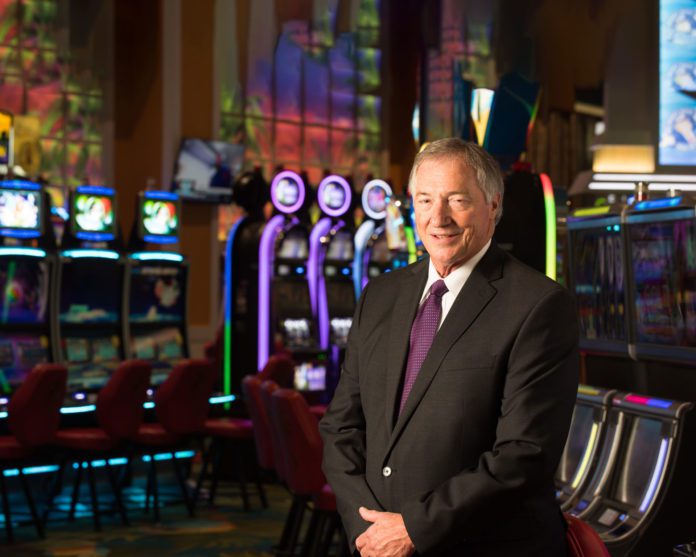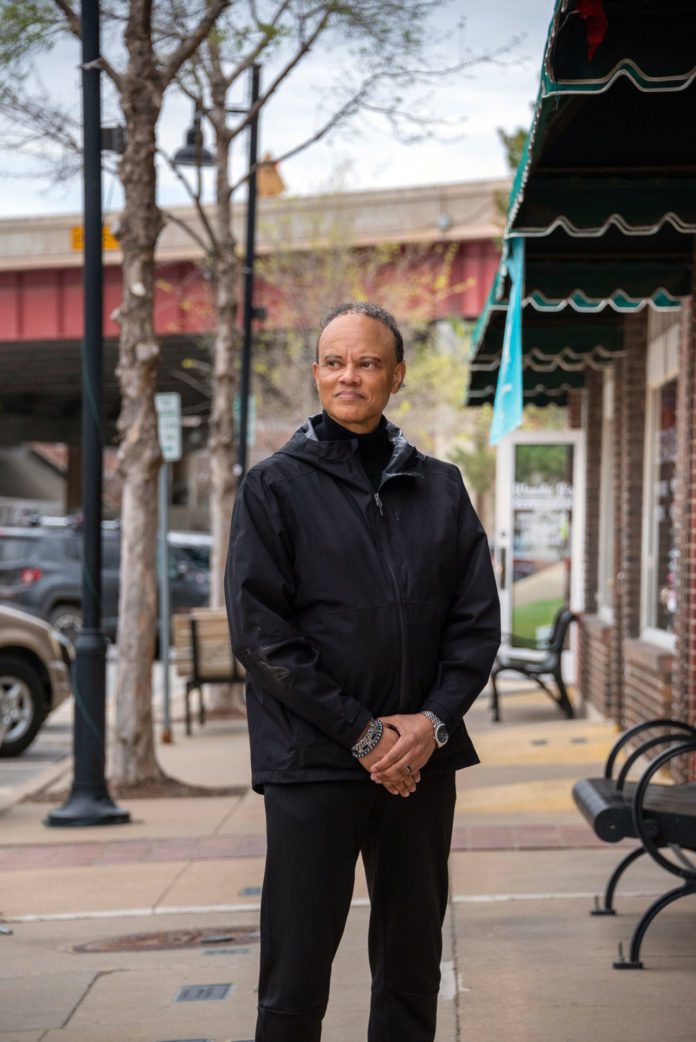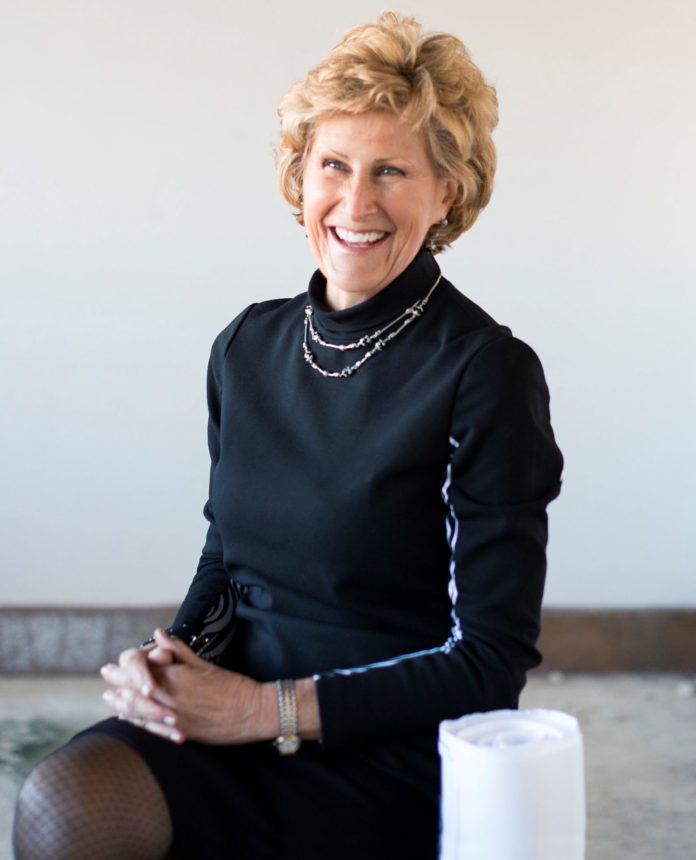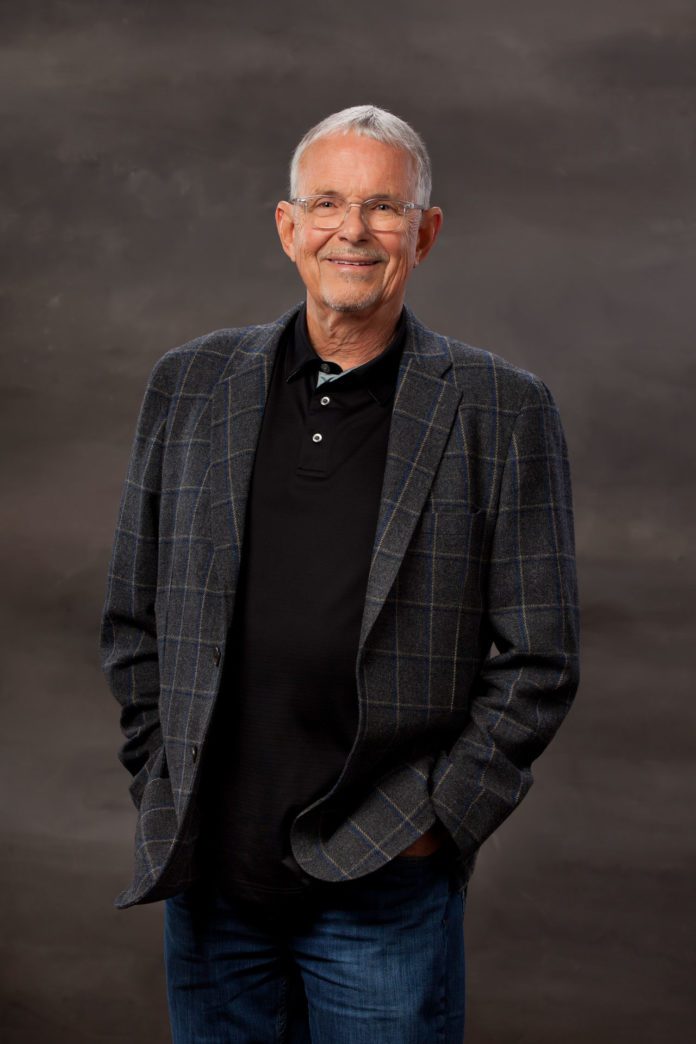5. Pat Crofts

After working in Oklahoma as a consultant, Pat Crofts was happy to accept a job offer from the Muscogee Creek Nation and make the move from Nevada. He already knew that despite a commonly held belief to the contrary, eastern Oklahoma was beautifully green.
He had worked before with Native American tribes and enjoyed those interactions, and he liked the Oklahomans he met while helping develop the River Spirit Casino.
“They are very nice people, very courteous people,” he says.
Crofts is CEO of Muscogee Creek Nation Casinos, which operates nine casinos and two travel plazas, employing about 2,100 people. He’s been in the hospitality and gaming business for more than 40 years, since graduating college in his native Utah.
“I was offered a job by a major international firm, and they had openings in Las Vegas and Los Angeles. I said: ‘I’m single and 21, how about Las Vegas?’”
His job encompasses the hotel, entertainment, casino and restaurant industries and the innovations that go with them.
“The tribes have gotten very creative and entrepreneurial,” he says.
As a non-Native, Crofts felt completely welcomed by the tribe. About a year ago, he was chosen by Native Business Magazine as one of the top 30 CEOs in Indian Country.
Crofts serves on the board of directors of the Tulsa chapter of the American Red Cross, which he says is “one of the greatest nonprofits I’ve been associated with.”
Off the clock, he enjoys spending time with his wife and their children, who are scattered across the nation.
“But I mostly work,” he says. “I truly enjoy getting up and going to work in the morning. It’s something new every day.”
4. Hannibal Johnson

Hannibal Johnson has spent decades relating the story of the Tulsa Race Massacre, as a teacher, author and consultant. But the heavy content of his speaking engagements doesn’t bring him down.
“The overarching narrative for me is what I call the indomitable human spirit,” he says. “The full story is about a group of remarkable Black people who were visionaries, who were determined, who were brilliant. The story does not center on the massacre.”
As this year’s centennial of the massacre approached, Johnson did a lot of training with corporate clients, focusing on diversity, equity and inclusion.
“This was, of course, a busier time because the centennial got so much media coverage,” he says.
Johnson serves on the board of Greenwood Rising, Tulsa’s new museum that tells the story of the Greenwood District and encourages the healing of lingering wounds. He chaired the education committee for the 1921 Tulsa Race Massacre Centennial Commission and was the local curator as the museum prepared for its August opening.
A graduate of Harvard Law School, Johnson, 62, has taught at the University of Tulsa College of Law. He’s also taught leadership classes in the MBA program at Oklahoma State University, and cultural diversity classes at the University of Oklahoma.
“The best way to learn something and to grasp it firmly and comprehensively is to be charged with teaching it,” says Johnson. “I love reinforcing my own knowledge. The preparation is something that I actually enjoy. And in terms of intellectualism, I’m a very social person. I like the face-to-face engagement.”
3. Judy Hatfield

Judy Hatfield knows who she is.
“I’ve always been really high-energy,” she says. “I’m a tomboy in an all-male family,” with two sons, three grandsons and three brothers. “God and I have talks every day, she continues. “My faith is very important to me.”
And even as a child, she knew she would one day be a business owner.
“I had come from generations of family-owned businesses,” says Hatfield, 72, who grew up in Pauls Valley and is the founding principal of Equity Commercial Realty.
“Fresh out of college, I thought I would learn first on other people’s money, and be better prepared to pick the type of business that I wanted to do,” she says. “Something that would keep me highly motivated and keep me strategically employed.”
For about a dozen years, she jumped at the chance to learn in corporate environments, gleaning along the way that she needed to be a CPA and earn some banking experience to realize her goals in commercial real estate brokerage and development.
“Working is a blast,” she says. “I’m passionate about what I do, and it keeps my mind very active.”
Hatfield lives in Oklahoma City and has a long resume of volunteer leadership roles outside the office.
“It brings me great joy,” she says of her work on boards for organizations like the Oklahoma Medical Research Foundation, United Way of Central Oklahoma, the Oklahoma City Chamber and the National Cowboy and Western Heritage Museum.
She owns a ranch, where she likes to shoot, fish and do mechanic work, too. But Hatfield’s mastered both worlds.
“I like to dress up and look good and wear stilettos when I need to do that,” she says.
She also makes time for hobbies.
“I love to travel, read, garden, cook and entertain,” she says. “I love to be creative with my grandkids and encourage them.”
2. Steve Irby

It could be said that the Beatles are responsible for Kicker, the Stillwater-based company that designs audio systems.
“In 1964, when I was in the ninth grade, the Beatles came and toured the United States,” says company founder and president Steve Irby, 72.
Naturally, he and some friends started a rock and roll band. But Irby needed a bigger speaker. It would cost $300, which caused his father – an Oklahoma State University professor – to drop his newspaper.
“He asked if that was something we could build,” says Irby. “We found a book in the OSU library on how to build a speaker enclosure. We found a used amplifier. It sounded really good.”
His first mobile project was a speaker that went behind the seat in his buddy’s pickup.
Irby was in graduate school at OSU, studying psychology, when he asked a friend to join him in the business he launched in his garage.
“We were partners for about three years, then I bought him out,” he says.
In the fourth year, Irby says, “we made a little bit of money. My wife was teaching school. We were from kind of the hippie generation. We didn’t require a lot to live on.”
Many of his customers worked in the oil field.
“They had money to burn and wanted to spend it on their sound systems,” he says. “We were in the right place at the right time with the right product. By the end of the 1980s we were in all 50 states. In 1990, we went international.”
Irby and his wife, who are active in their church and philanthropic causes, have two grown children.
“I’ve always felt like God put me in this business,” he says. “I do something I like, and I love meeting people from other countries.”
1. Sherry Lewis

Sherry Lewis learned early on to make decisions with her own best interests at heart, and it paid off, both personally and professionally. She now loves to train the agents at the seven Keller Williams Realty offices of which she is majority owner, and encourage them to go after the kind of life she has enjoyed.
“I tell my new agents that when I see them again, I won’t be asking them how many houses they have listed or how many sales they have made,” says Lewis, 68. “I will be asking them if they love the business.”
It’s a business Lewis was actually discouraged from entering decades ago because she had a young child. But she obtained her license anyway, starting her career in Houston and continuing after she returned to her native Oklahoma.
About 1,000 agents are associated with her offices in the Tulsa metro, and she’s also a regional director for Keller Williams Oklahoma.
“I no longer list or sell,” she says. “I don’t compete with my people.”
Happiness was modeled in her childhood home.
“Growing up in Muskogee was awesome,” she says. “My mother and father were great people.”
About 10 years ago, Lewis made another decision that enhanced her quality of life. Her husband, Steve, had been downsized from his job. His new position wasn’t a good fit. She suggested he retire early, take care of things at home and help look after his parents. It has worked well.
“I have the greatest husband, and we are such companions,” she says. “We love to go to Nascar races. We go to car shows. But we kind of have an oasis in our backyard, so we don’t feel the need to travel a lot.”






















